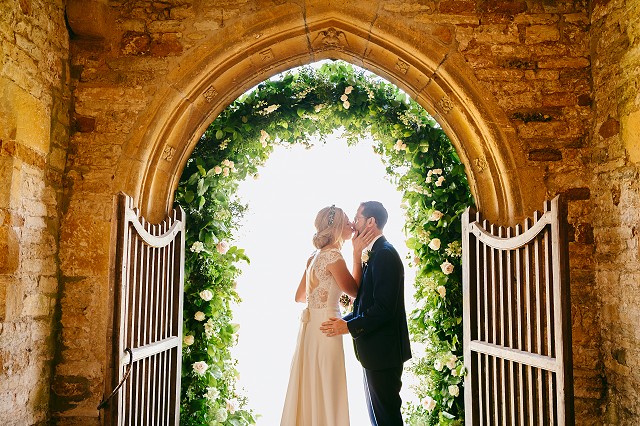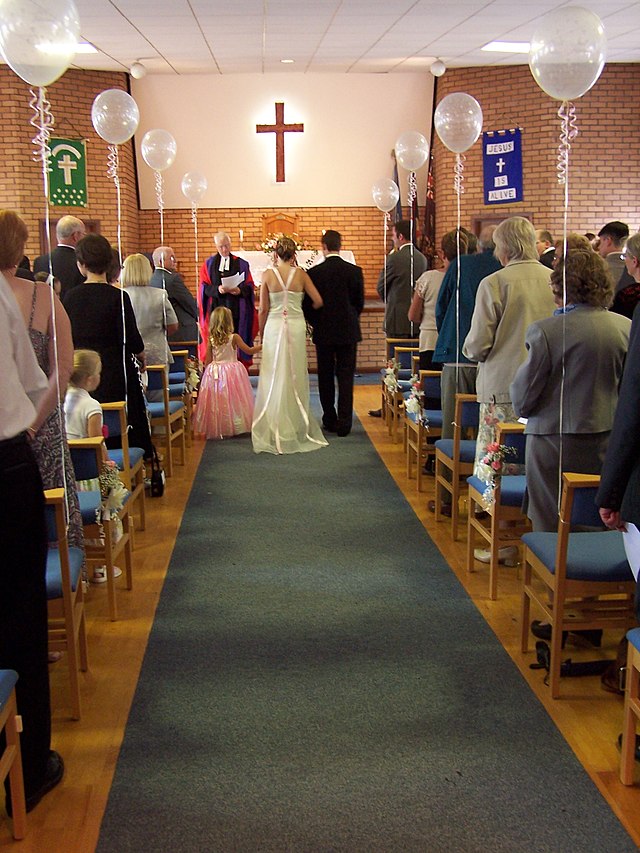
Today’s hymn from Sing Praise is “Lord and lover of creation” by John Bell and Graham Maule. As John Hartley pointed out when deciding not to include it in morning prayer, it’s a wedding hymn, and more a prayer for the couple than for the singers.
The first verse asks God to bless the couple as they come together celebrating their common love. The second verse gives thanks for the people and circumstances that brought them together, for sometimes it takes a dispassionate third person to help a couple realise what they see in each other. The third verse is, in good Celtic tradition, a blessing on their home, and the last looks to a long future together, concluding with the warning echoing that of the priest’s traditional words that “none dare break or bind those your name has joined together”.
As often in John Bell’s hymns there are some strikingly original phrases: “friends who touched and summoned talent”, “your children wed and welcome”, “health in home and hearts and humour”, “much to share and more to treasure”.
For once John Bell didn’t write his own tune to this, but picked a much older one ‘Westminster Abbey’, probably on the grounds that a wedding congregation would be much less likely than regular worshippers to be confident picking up a new tune. But with a bit of luck they might know this tune as ‘Christ is made the sure foundation’.
